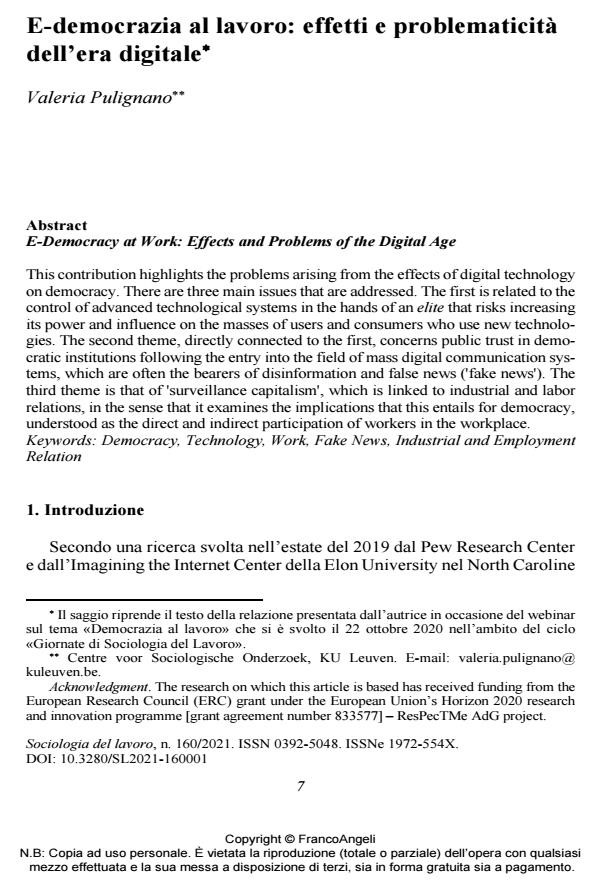E-Democracy at Work: Effects and Problems of the Digital Age
Journal title SOCIOLOGIA DEL LAVORO
Author/s Valeria Pulignano
Publishing Year 2021 Issue 2021/160
Language Italian Pages 17 P. 7-23 File size 211 KB
DOI 10.3280/SL2021-160001
DOI is like a bar code for intellectual property: to have more infomation
click here
Below, you can see the article first page
If you want to buy this article in PDF format, you can do it, following the instructions to buy download credits

FrancoAngeli is member of Publishers International Linking Association, Inc (PILA), a not-for-profit association which run the CrossRef service enabling links to and from online scholarly content.
This contribution highlights the problems arising from the effects of digital tech-nology on democracy. There are three main issues that are addressed. The first is related to the control of advanced technological systems in the hands of an elite that risks increasing its power and influence on the masses of users and consumers who use new technologies. The second theme, directly connected to the first, con-cerns public trust in democratic institutions following the entry into the field of mass digital communication systems, which are often the bearers of disinfor-mation and false news ('fake news'). The third theme is that of 'surveillance capi-talism', which is linked to industrial and labor relations, in the sense that it exam-ines the implications that this entails for democracy, understood as the direct and indirect participation of workers in the workplace.
Keywords: Democracy, Technology, Work, Fake News, Industrial and Employment Relation
Valeria Pulignano, E-democrazia al lavoro: effetti e problematicità dell’era digitale in "SOCIOLOGIA DEL LAVORO " 160/2021, pp 7-23, DOI: 10.3280/SL2021-160001